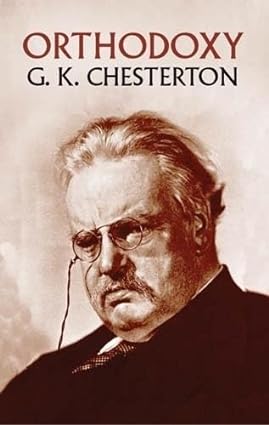Tonight, we are discussing chapter 6 of Orthodoxy, “The Paradoxes of Christianity.” A paradox is simply a statement that apparently contradicts itself and yet might be true. Chesterton uses the idea of paradoxes in addressing Christianity in two different ways. First, he explains that the thing that led him to reconsider Christianity was not an apology by Christians, but the contradictory reasons for which the world rejected it. For example, Christianity was criticized because it degraded women’s intellect yet was also criticized because it appealed only to women. Therefore, Chesterton reasoned that if a thing was criticized as being both too tall and too short, too big and too small, then it must be just right. In the second instance, Chesterton explores the paradoxes of Christianity as being able to hold two opposing views at the same time without diluting either one. As he says, “It is constantly assured that when the lion lays down with the lamb, the lion becomes lamb-like. But that is brutal annexation and imperialism on the part of the lamb. That is simply the lamb absorbing the lion instead of the lion eating the lamb. The real problem is – Can the lion lie down with the lamb and still retain his royal ferocity? That is the problem the Church attempted; that is the miracle she achieved.”
As you read through this chapter, think about the contradictory criticisms of the Church today, and think about the seemingly contradictory positions to which the Church holds fast (such as God’s justice and mercy). Dinner on Tuesday is Asian sesame noodles with chicken. Hope to see you here.
Ooh!” said Susan, “I’d thought he was a man. Is he–quite safe? I shall feel rather nervous about meeting a lion.”
– Chronicles of Narnia
“Safe?” said Mr. Beaver; don’t you hear what Mrs. Beaver tells you? Who said anything about safe? ’Course he isn’t safe. But he’s good. He’s the King, I tell you”

